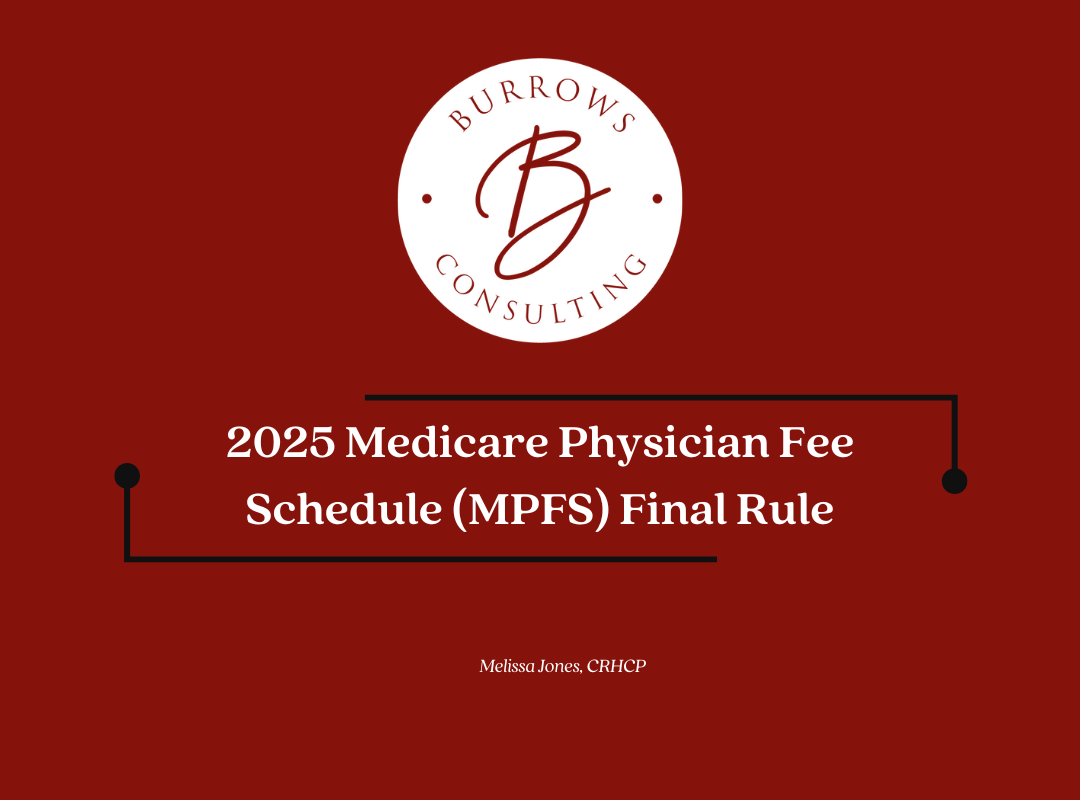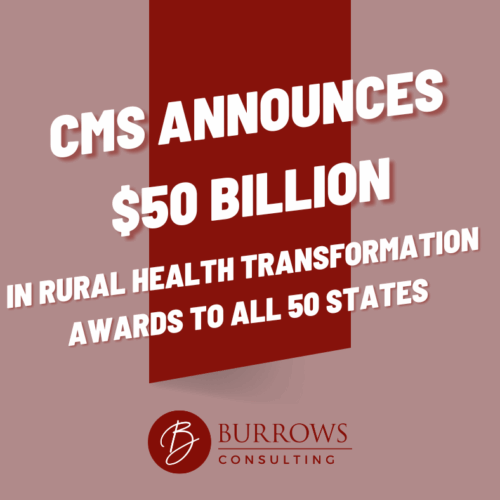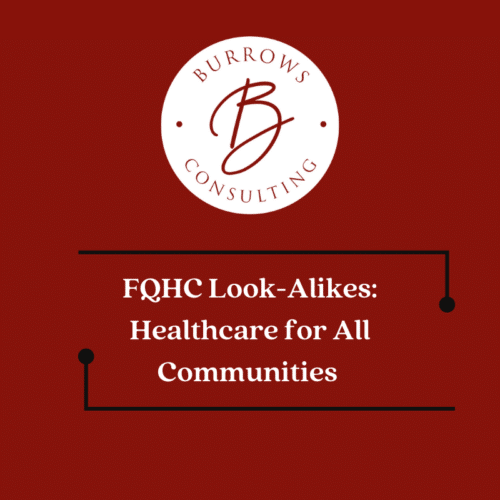Released 11/1/2024 by The Centers for Medicare and Medicaid Services (CMS)
CMS Fact Sheet Final RuleThe majority of these policies will go into effect January 1, 2025, unless otherwise specified.
We extend our deepest gratitude to our advocates at the National Association of Rural Health Clinics (NARHC) for their advocacy and thorough examination of the final rule related to RHCs and its provisions, which aim to ensure safety net providers can fully benefit from these updates.
A brief overview is included below. Additionally, NARHC’s team will host a webinar November 18th to discuss these provisions of positive implications for the RHC community.
- Allowing RHCs to bill for administration of Part B preventive vaccines (COVID-19, pneumococcal, influenza, and Hepatitis B) at time of service, not entirely in a lump sum settlement on cost report, beginning July 1, 2025
- Eliminating RHC productivity standards for cost report periods ending after December 31, 2024
- Completely revising RHC care management billing with the elimination of the G0511 consolidated code
- Establishing new “Advanced Primary Care Management Services” billing opportunities
- Removing Hemoglobin/Hematocrit and examination of stool specimens for occult blood from the list of required RHC lab services
- Clarifying guidance versus regulatory discrepancies in how “primarily engaged in primary care” is defined and enforced
- Expanding same-day billing flexibilities for dental services able to be furnished in RHC setting
- Modifying Intensive Outpatient Program (IOP) Services payment to allow for reimbursement of three and four-service days
- Extending Medicare telehealth flexibilities until December 31, 2025
Elimination of Productivity Standards
The current productivity standards for Rural Health Clinics (RHCs) require each full-time equivalent (FTE) physician to achieve 4,200 visits annually and each FTE nurse practitioner, physician assistant (PA), and certified nurse midwife to reach 2,100 visits annually. Other RHC practitioners are not held to these productivity benchmarks.
With all RHCs now under an upper payment limit either the clinic specific cap for grandfathered RHCs or the national statutory cap for new and independent RHCs the productivity standards are less impactful as a regulatory safeguard and may introduce additional challenges.
In response, the National Association of Rural Health Clinics (NARHC) has advocated for the Centers for Medicare & Medicaid Services (CMS) to reconsider and update these standards. CMS has recognized the decreasing relevance of these requirements and has finalized a proposal to remove productivity standards for RHCs, effective for cost reporting periods ending after December 31, 2024. Means that the change in this case, the elimination of productivity standards for RHCs will apply to any reporting periods that close after this date. For example, if an RHC’s cost reporting period ends on January 1, 2025, or later, the new rule (no productivity standards) will apply. However, for cost reporting periods ending on or before December 31, 2024, the previous productivity standards will still be in effect.
Care Management
CMS finalized their proposal to allow RHCs to bill the individual CPT codes that have historically comprised the G0511 code, instead of billing the consolidated code itself.
Beginning January 1, 2025, RHCs should bill, on the UB-04 claim form, the CPT codes found in Table 28 here when they perform care management services. While some of the fee schedule reimbursements may be lower than the consolidated rate of $72.90, this change means RHCs will be eligible to bill for add-on time-based codes, too.
In recognition of the complexities of yet another change to the care management billing system for RHCs however, CMS established a transition period for getting into compliance with the new billing structure. From January 1, 2025, through July 1, 2025, RHCs may bill either G0511 or the individual CPT codes in Table 28. This flexibility is at the RHC-facility level as your billing system is updated, however, not the patient level. After July 1, 2025, G0511 will no longer be reimbursable.
Separately, CMS finalized, with a few changes, new codes for Advanced Primary Care Management (APCM) services, a set of three G-codes intended to bundle existing care management codes based on complexity of patient condition, not time spent on each patient’s care management activities, reimbursed as calendar month bundles. If an RHC billed for these codes, they would not bill for individual services explained above.
These codes will be structured as follows:
- G0556 – Patients with 0-1 chronic condition; ~$15 per month
- G0557 – Patients with two or more chronic conditions; ~$50 per month
- G0558 – Patients who are QMBs with two or more chronic conditions; ~$110 per month
As all Medicare providers continue to learn more about these new APCM codes, stay tuned for additional resources from NARHC and CMS.
Lab Services
CMS is finalizing the proposal to remove hemoglobin and hematocrit (H&H) and examination of stool specimens for occult blood from the list of lab services that RHCs must have the equipment and supplies to provide directly within the RHC.
Additionally, they finalized updating “primary culturing for transmittal to a certified laboratory” to “collection of patient specimens for transmittal to a certified laboratory for culturing” to reflect more current clinical laboratory standards.
Note: This regulatory change does not prohibit you from continuing to do these lab services within your facility, it simply offers additional flexibility in situations where this isn’t being used or is no longer appropriate.
Conditions for Certification Changes – Provision of Primary Care versus Specialty Services
The current RHC statute and associated regulations stipulates that RHCs must be primarily engaged in “providing outpatient services.” However, CMS State Operations Manual Appendix G explains that “RHCs may not be primarily engaged in specialized services.”
CMS acknowledged the discrepancy that exists between the various documents that regulate the RHC program and in order to ensure greater flexibility in the outpatient services RHCs can provide.
CMS finalized the below addition to the 491.9(2) regulation:
- The clinic or center must provide primary care services.
- The clinic is not a rehabilitation agency or a facility primarily for the care and treatment of mental diseases.
CMS intent here is that RHCs will be required to provide primary care services, as they always have, but beginning January 1, 2025, will no longer be surveyed to a requirement that they provide more than 50% of operating hours as primary care services.
Although CMS is technically adding to the regulation, this change reduces the previously restrictive threshold on specialty care, allowing each individual RHC greater flexibility.
Please contact Melissa Jones, CRHCP
Rural Health Clinic Senior Associate, Burrows Consulting at melissa@burrowsconsulting.net with any questions.
Reference https://www.cms.gov/newsroom/fact-sheets/calendar-year-cy-2025-medicare-physician-fee-schedule-final-rule; https://www.narhc.org/narhc/Default.asp



0 comments to " 2025 Medicare Physician Fee Schedule (MPFS) Final Rule "